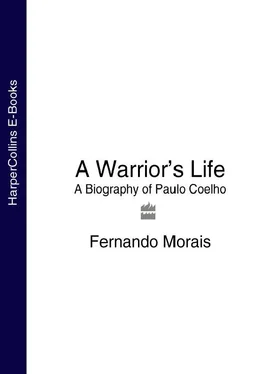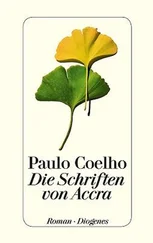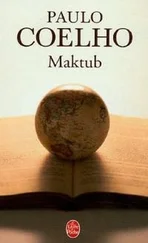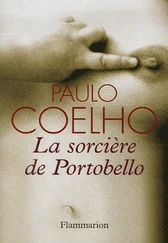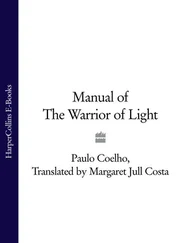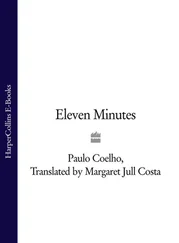Once he has read the newspapers, he gets back to work. Now it is time for Marsi Aniko, the presenter of RTL Club’s Fokusz2 , which regularly tops the Sunday evening ratings. The unusual thing about Fokusz2 is that, at the end of each programme, the interviewee is given a Hungarian dish prepared by Marsi Aniko herself. In a small, improvised studio in the hotel, the face-to-face interview again holds no surprises, apart from the way she blushes when a cheerful Coelho decides to start talking about penetrative sex. At the end, he receives a kiss on each cheek, a tray of almásrétes – a traditional Hungarian tart filled with poppy petals that Aniko swears she has made with her own fair hand – and a bottle of Pálinka, a very strong local brandy. Within minutes, the set has been removed to make way for another jollier, more colourful one, for an interview with András Simon from Hungarian MTV. An hour later, once the recording is over, the journalist hands the author a stack of seven books to sign.
With a few minutes’ break between each interview – time enough for the author to drink an espresso and smoke a cigarette – these interviews continue into the late afternoon. When the last reporter leaves the hotel, it is dark.
Coelho declares that he is not in the least tired. ‘On the contrary. Talking about so many different things in such a short space of time only increases the adrenalin. I’m just getting warmed up …’
Whether it is professionalism, vanity or some other source of energy, the fact is that the author, who is about to turn sixty, is on enviably good form. A shower and another espresso are all it takes for him to reappear at 8.30 in the hotel lobby, gleefully rubbing his hands. Mônica, Lea (who has managed to attach herself to the group), the silent bodyguard Szabados and Gergely are waiting for him. There is one more engagement before the end of the day: a dinner with writers, publishers and journalists at the home of Tamás Kolosi, who owns the publishing house Athenäum and is one of the people behind Coelho’s visit to Hungary. When Gergely asks Coelho if he’s tired after all the day’s activities, the author roars with laughter.
‘Certainly not! Today was just the aperitif. The real work begins tomorrow.’
After dinner with the publisher, Mônica uses the ten minutes in the car journey back to the hotel to tell him what she has organized with Gergely for the following day.
‘The opening of the book festival is at two in the afternoon. You’ve got interviews at the hotel in the morning, so there’ll be no time for lunch, but I’ve booked a restaurant on the way to the book festival so that we can grab a sandwich and some salad.’
Coelho’s mind is elsewhere. ‘I’m worried about the Israeli publisher. He doesn’t like the title The Zahir and wants to change it. Call him tomorrow, will you, and tell him I won’t allow it. Either he keeps the title or he doesn’t get to publish the book. It was bad enough them changing the name of the shepherd Santiago in The Pilgrimage to Jakobi.’
He was equally stubborn before he became famous. Mônica recalls that the US publisher of The Alchemist wanted to re-name it The Shepherd and His Dreams , but the author refused to sanction the change.
Listening to her now, he says, smiling: ‘I was a complete nobody and they were HarperCollins, but I stuck to my guns and said “No way,” and they respected me for that.’
The following morning it is sunny enough to encourage the author to take his usual hour-long walk – this time along the banks of the Danube. Then after a shower, a quick glance at the Internet, breakfast and two interviews, he’s ready for the second part of the day: the opening of the book festival. On the way there, they stop at the place reserved by Mônica, a snack bar, where all the other customers seem to have been driven away by the incredibly loud music coming from an ancient juke-box.
Coelho walks over, turns down the volume, puts 200 florins into the machine and selects a 1950s hit, ‘Love Me Tender’ by Elvis. He goes back to the table smiling as he imitates the rock star’s melodious tones: ‘“Love me tender, love me true …” I adore the Beatles, but this man is the greatest and will be around for ever …’
Gergely wants to know why he’s so happy, and Coelho flings wide his arms.
‘Today is the feast of St George, the patron saint of books. Everything’s going to be just fine!’
The International Book Festival in Budapest takes place every year at a convention centre located in a park – which, today, is still powdered with winter snow – and brings in hundreds of thousands of visitors. Coelho is welcomed at a private entrance by three burly bodyguards and ushered into the VIP lounge. When he learns that there are almost five hundred people waiting at the publisher’s stand to have their books signed, he says:
‘We said that only 150 vouchers were to be handed out.’
The manager of the publishing house explains that they have no means of getting rid of the readers and fans. ‘I’m sorry, but when the vouchers ran out, the other people in the queue simply refused to leave. There were even more people originally, but some of them have gone over to the auditorium where you’re due to speak. The problem is that it only seats 350, and there are now 800 waiting to get in. We’ve had to erect screens outside for them.’
Mônica goes quietly out of the room to the Athenäum stand and returns five minutes later, shaking her head and looking worried. ‘It’s just not going to work. It’s going to be bedlam.’
The security people say there’s no danger, but suggest that Mônica’s son and the nanny remain in the VIP lounge until the end of the programme.
Now, however, the news that the festival is crammed with fans and readers appears to have dispelled Coelho’s initial feelings of irritation. He gets up smiling, claps his hands and makes a decision: ‘So there are too many people? The more the merrier! Let’s go and meet the readers. Just give me five minutes alone.’
He goes to the toilet as if for a pee, but once there he stands and stares into space, praying silently. Then he asks God to make sure that everything goes well during the day. ‘Now it’s up to You.’
God appears to have listened. Protected by the three bodyguards, and by Szabados, who has orders never to let him out of his sight, Paulo Coelho arrives in the Béla Bártok room lit by the lights of television crews and the flashlights of photographers. All the seats are taken and even the passageways, aisles and galleries are filled to capacity. The audience is equally divided between men and women, but most are young. He is escorted to the stage by the security guards and he acknowledges the applause, his hands pressed to his chest. The harsh lights and the crush of people mean that the heat is unbearable. The author speaks for half an hour in fluent French, talking about his life, his beliefs and the struggle to realize his dream to become a writer, all of which is then translated into Hungarian by a young woman. After this a small number of people are selected to ask questions, at the end of which the writer stands up to thank everyone for their welcome.
The audience don’t want him to leave. Waving their books in the air, they yell: ‘ Ne! Ne! Ne! ’
In the midst of the uproar, the interpreter explains that ‘ ne ’ means ‘no’ – those present do not want the author to leave without signing their books. The problem is that the security people are also saying ‘ ne ’. There are simply too many people. The cries of ‘ Ne! Ne! ’ continue unabated. Coelho pretends not to have understood what the security people are saying, takes a pen out of his pocket and returns, smiling, to the microphone. ‘If you can get yourselves in some kind of order, I’ll try and sign a few.’
Читать дальше
